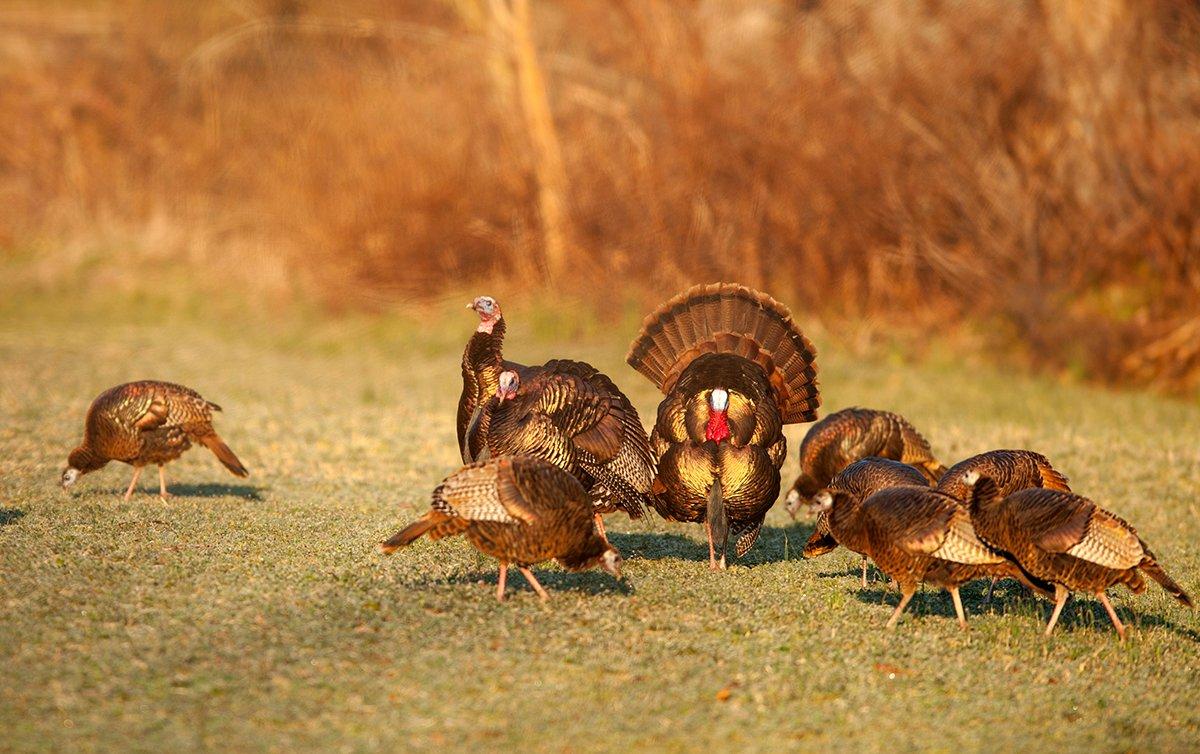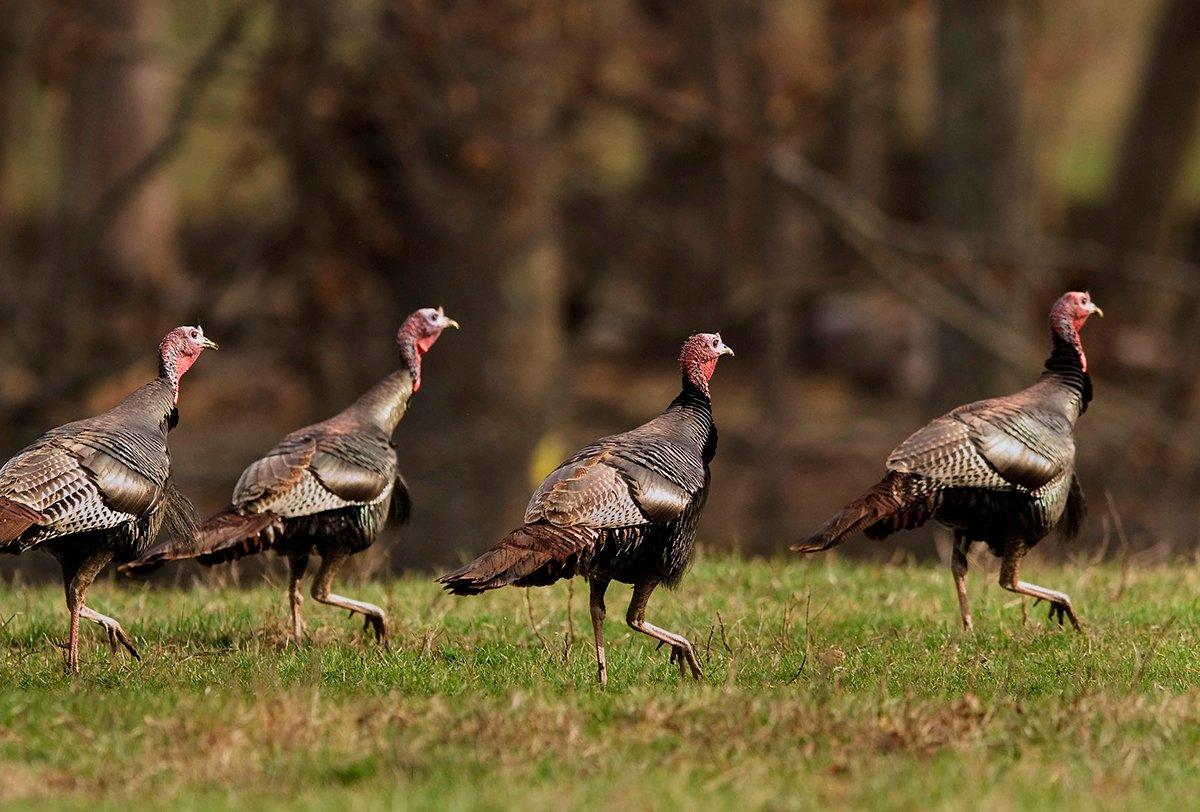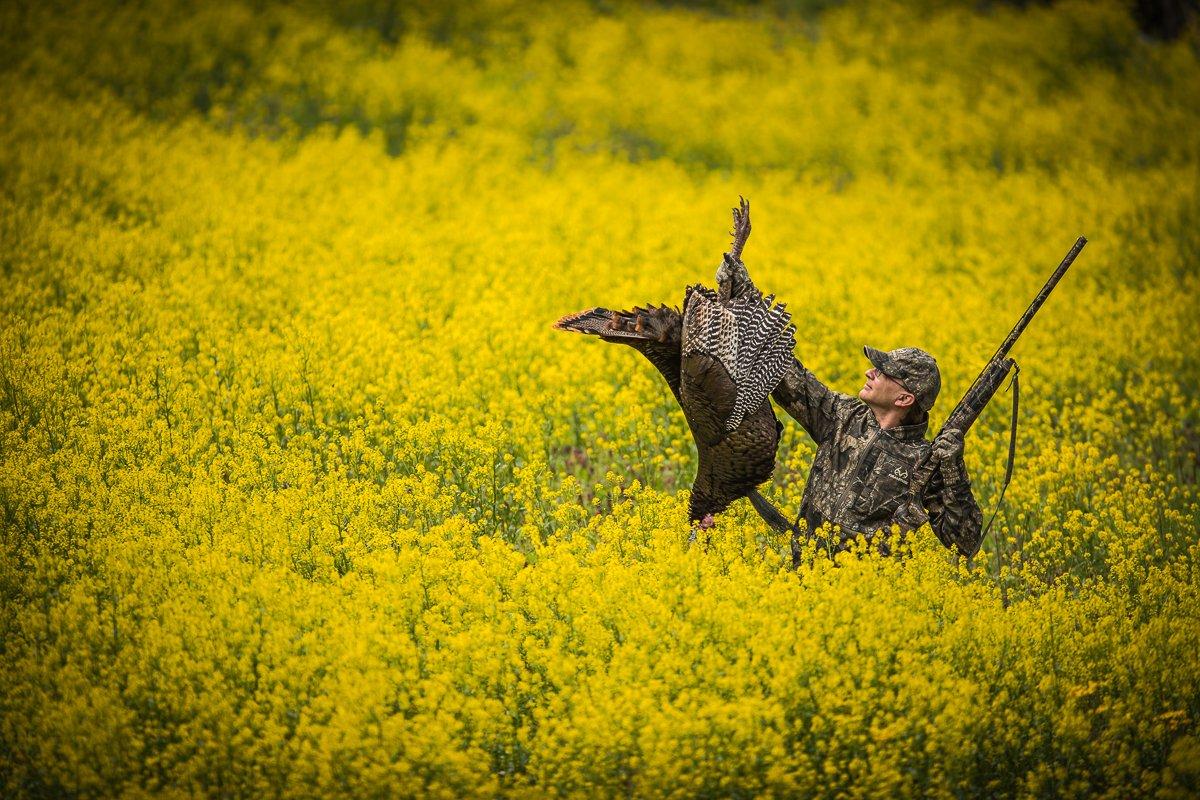Experts weigh in on the notoriously hardest places to chase spring gobblers
Defining a tough turkey hunt is tricky.
Some hunters expect to easily fill tags on cooperative birds. Others measure a quality hunt by the standard of unpressured, gobbling turkeys in pretty places. Two old-school measures of toughness include shut-mouthed or henned-up strutters.
Still, certain states are especially tough due to hunting pressure on public land, or historically difficult wild turkeys that seem genetically programmed to kick our butts.
Yep, you know the kind of birds we're talking about. We caught up with a few hard-traveling turkey hunters to get their opinions on the most notoriously difficult places to chase gobblers, states that seem to present predictable challenges. Here's what they said.
Tyler Jordan | Georgia, Alabama, and Mississippi
Toughest three turkey hunting places to turkey hunt and why? Not hard to answer for me! says Realtree's Tyler Jordan. Georgia, Alabama, and Mississippi. Easterns can be so tricky to hunt at times in general. This is due to there being more hunting pressure versus anywhere else in the country, he says.
This season has proved no different for Jordan. We worked hard on the opening week in Mississippi. Four days of horrible weather conditions and birds still grouped up. But we hung in there and bounced around to multiple places until we could finally find one that would cooperate, he says.
Jordan has also seen one other consistent challenge making states across the Deep South tough: These birds also learn to distrust calling midways through the season.
His final tip? Having patience for an Eastern is key. Give them time to commit.
[Don't Miss: Best Turkey Hunting Road Trips]
Tom Doc Weddle | Rhode Island, Nevada, and Louisiana
Indiana's Tom Weddle has covered the United States many, many times in his quest for multiple Super Slams (killing a wild turkey in each of the 49 states where turkey hunting is permitted). His picks might surprise you.
Rhode Island has many people out traipsing around (birders, bikers, horseback riders, hikers, etc.), and not nearly enough turkeys on their public land, Weddle says. Why that's true is hard to figure out, because it's really a pretty state with lots of ideal-looking habitat.
Many turkey hunters will also find his next pick unique.
Then there's Nevada, he says. Not many turkeys in the whole state, and they only give out a very few (single-digit) public-land permits for nonresidents. Plus, you must buy an expensive hunting license just to apply in their lottery.
Louisiana is next on Weddle's list. I've struggled to kill birds in this state more than in any other, he says. My average is nearly 10 days per shooting opportunity, and the only other state that comes close to that level of ineptness is Rhode Island, at about eight days.
Why? Tough birds, not a great deal of public land. And the ground where I've hunted the most is bisected by a bunch of roads. That means if you hear a distant bird gobbling, there is probably someone else closer and coming after him from another direction. I've had numerous toms killed 'out from under me' because of that.
And a final note, the toughest permit draw: I'm holding out hope of someday drawing a Gould's permit in Arizona, Weddle says. I'd really like for my first Gould's to be a public-land tom taken on U.S. soil, so that will continue to be a major focus every year until I draw one … IF that ever happens!
[Don't Miss: Favorite Turkey Decoy Setups of the Pros]
Brian Lovett | Alabama, South Carolina, and Louisiana
Wisconsin's Brian Lovett — author of several books on tough and pressured turkeys — agrees with Jordan on one state pick, and with Weddle on another. Anywhere in the Southeast, really, is difficult, he says. And as three places go, I'll pick Alabama, South Carolina, and Louisiana.
Alabama is difficult for specific reasons, he says.
I think those areas are tough because they have populations of turkeys that have been hunted so hard for so long, Lovett says. Many of those spots never lost turkeys, even during the dark days of the early 20th century. And for decades, those birds have been pursued by the best turkey hunters in the country. An Alabama Eastern that's received even moderate hunting pressure is a different bird than his cousin in Wisconsin. I've taken quite a few Alabama birds, but you usually have to do everything right to stay in the game.
The one new to our state list here is South Carolina, home to the National Wild Turkey Federation. South Carolina has given me fits! Lovett says.
Jim Spencer | Hawaii, Mississippi, and Arkansas
For Spencer, who calls Arkansas home base, one pick is based on several degrees of difficulty.
Hawaii is tough, because of the trouble involved in getting there, and also because the public land gets beat up badly and most of it is above 9,000 feet, he says. Hunting private with a guide would be a lot different, but if you kill a public-land gobbler on your own in Hawaii, you can call yourself a turkey hunter.
Spencer seconds Mississippi, too.
Mississippi is difficult because everybody and his stepbrother go there. Every turkey in Mississippi is a Bad Bird, he says, a reference to his two books on the subject of tough gobblers.
Next is his home state of Arkansas. Our birds have taken a hard hit with poor hatches for about six or seven years straight, Spencer says, and because the coronavirus has pretty much turned public-land hunting into a contact sport.
Spencer reminds us all: It's supposed to be tough. That's the whole point.
Remember to enjoy it.
For more on these states, check out Realtree's Turkey Hunting Nation, where we share additional information that might just help you with tough turkeys.











